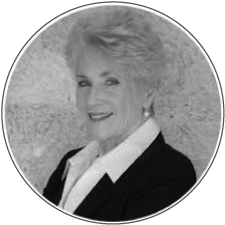
Virginia Lynch
MS, RN, AFN-Global Ambassador
Virginia A. Lynch is recognized as the preeminent scholar and founder of forensic nursing as a scientific discipline. She received her Bachelor of Science Degree in Nursing from Texas Christian University (TCU) in 1982 where she was introduced to the forensic sciences through a clinical assignment. This project took her into the wider world of interpersonal crime and the scientific investigation of death. Her first experience in a crime laboratory refocused her professional interest, putting forensic and nursing science at the center of her career. This encounter inspired her to learn more about the forensic sciences and its application to nursing practice. She learned that many interpersonal crimes are never properly adjudicated, often due to loss of evidence by health care personnel that was inadvertently discarded or improperly preserved and secured after collection.
Lynch recognized the need for nurses to be enlightened about the precise preservation and relevance of forensic evidence. The revelation eventually motivated her to her to establish a Rape Crisis Program in a rural Texas county and to pursue practice changes which would ultimately lead to a new nursing specialty aimed at improving health and legal outcomes for victims of violence. She was recognized in 1985 as a Notable Woman of Texas for her work. Following graduation from TCU, she pursued her Master of Science in Nursing in the clinical specialization of forensic nursing, a program she was instrumental in designing at the University of Texas at Arlington (UTA) College of Nursing. During graduate studies at UTA, she was credentialed as a Sexual Assault Forensic Nurse Examiner.
In 1984, Lynch served as a medicolegal death investigator for the Tarrant–Parker County Medical Examiner's District in Fort Worth, Texas. She studied advanced death investigation in 1990 at the New York City Office of the Chief Medical Examiner (OCME), later becoming a certified coroner in the state of Georgia in 1992. This experience broadened her perspectives about potential contributions of nurses in innovative forensic roles and has subsequently become an advocate for the role of forensic nurse death investigator (FNDI). In 1993, Lynch accepted a faculty position at the University of Colorado, Colorado Springs to coordinate a MSN forensic nursing program and developed the first course in human rights for forensic nurses. In 2000, she launched a global outreach program in forensic nursing science involving teaching, consulting, and social advocacy. Lynch was elected to the American Academy of Forensic Sciences (1986), which asked her to define the discipline of forensic nursing and was honored as a Distinguished Fellow in 2018. She is an elected Fellow of the American Academy of Nursing. As founding president (1993-1996) of the International Association of Forensic Nurses (IAFN), one of her most rewarding tributes has been the establishment of the Virginia A. Lynch Pioneer Award, which the IAFN presents annually to a member who has significantly contributed to the advancement of the forensic nursing specialty.
Lynch’s expertise is sought globally, taking her to more than 30 countries as a visiting professor and independent consultant in addition to participation in numerous global consortiums and conferences. Her international involvement in forensic nursing has included a Fulbright Fellowship in global health at Punjabi University in India. A frequent lecturer and prolific writer, including the seminal text Forensic Nursing, published by Elsevier in 2006 and with a second edition published in 2010. This book was acclaimed as the “most significant scholarly/professional contribution to nursing and allied health” for the year 2006 by the American Association of Publishers, Inc. Lynch’s recent work includes ensuring the proliferation of forensic nursing by helping to build forensic nursing programs as she lectures, conducts workshops, and serves as a consultant to professional societies and universities while she inspires and mentors the next generation of forensic nurses.
Lynch indicates that the greatest challenge in the advancement of forensic nursing is the lack of specialty educational opportunities in both graduate and undergraduate nursing programs. Healthcare organizations and community agencies have not fully appreciated the potential value of forensic nursing’s contributions for client services, and as a result, there is insufficient funding for forensic support services and related staff positions.





